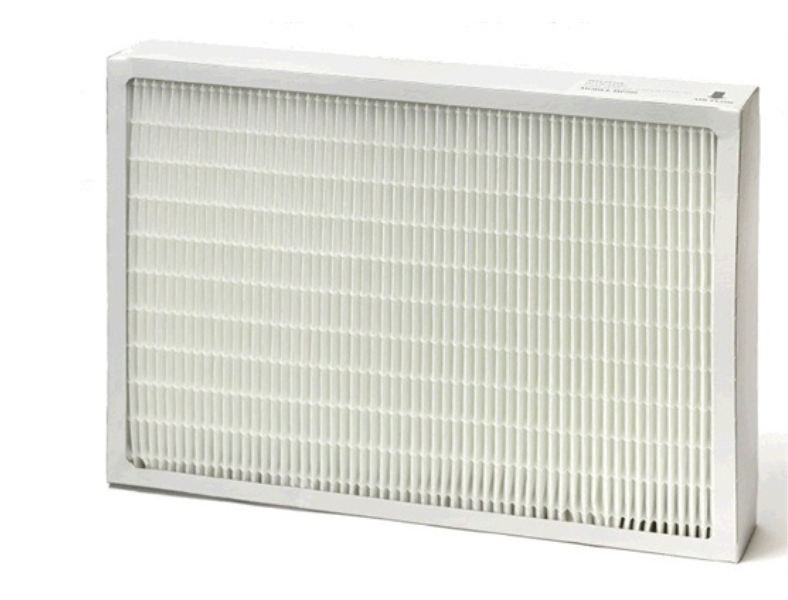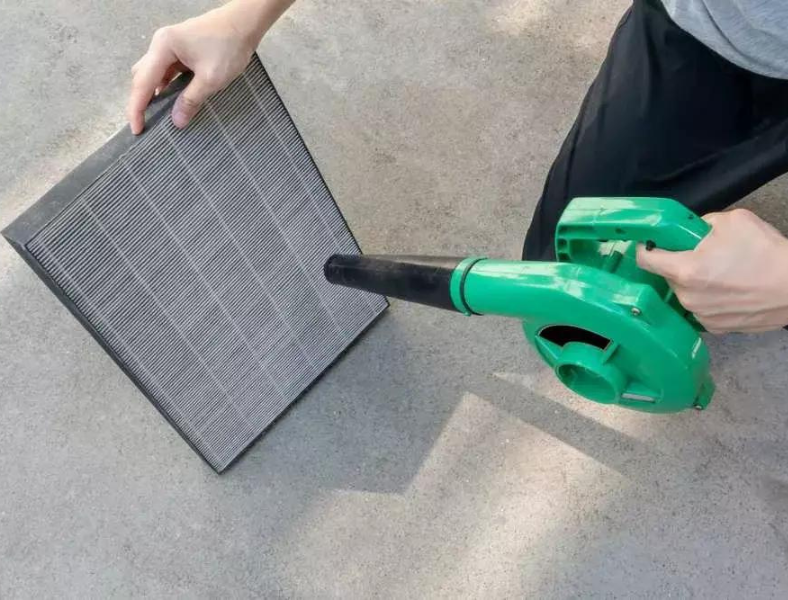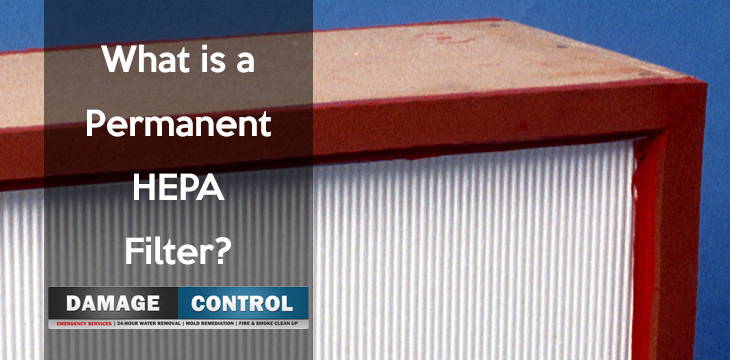Hey there! Have you ever heard of HEPA filters?
HEPA filters are designed to capture tiny particles like dust, pollen, and pet dander, which can be a real pain for anyone with allergies or respiratory issues.
But wait, there's more!
Introducing permanent HEPA filters. These filters work just like regular HEPA filters, but with one major difference: they're built to last.
That's right, no more constantly replacing disposable filters – with permanent HEPA filters, you can save money, time, and hassle.
In this article, we'll explore everything you need to know about permanent HEPA filters, including how they work, their advantages and disadvantages, and how to choose and maintain the right one for your needs.
So buckle up and get ready to breathe easy!
What are Permanent HEPA Filters?
 Now that you know a little bit about HEPA filters in general, let's dive into the world of permanent HEPA filters.
Now that you know a little bit about HEPA filters in general, let's dive into the world of permanent HEPA filters.
So, what are they exactly? Essentially, permanent HEPA filters are just what they sound like – HEPA filters designed to be permanent.
Unlike traditional disposable HEPA filters, which need to be replaced every few months, permanent HEPA filters are made from more robust and durable materials that allow them to be cleaned and reused often.
One of the major differences between permanent and disposable HEPA filters is that permanent filters typically have a metal frame that surrounds the filter material.
In contrast, disposable filters are usually made entirely of paper or cardboard. This metal frame makes permanent filters more robust and less likely to get damaged during cleaning.
Another advantage of permanent HEPA filters is that they are generally more eco-friendly than disposable filters. Since you don't need to throw them away and replace them as often, you'll be reducing the amount of waste that ends up in landfills.
So, now you know what permanent HEPA filters are and how they differ from disposable ones. In the next section, we'll examine the pros and cons of using permanent HEPA filters.
Advantages of Permanent HEPA Filters
Using permanent HEPA filters can offer a variety of benefits, including:
Cost savings
Since permanent filters can be cleaned and reused, you'll save money in the long run by not constantly replacing disposable filters.
Convenience
With permanent filters, you won't need to worry about running out to buy new filters every few months. Instead, you can simply clean the filter and put it back in place.
Environmental friendliness
As mentioned earlier, using permanent filters can be a more eco-friendly option since you won't be contributing as much waste to landfills.
Durability
Permanent HEPA filters are typically more durable than disposable filters, which means they may last longer and be less likely to get damaged during cleaning.
High filtration efficiency
Permanent HEPA filters are designed to capture tiny particles as small as 0.3 microns, which can help improve your home's air quality.
Using permanent HEPA filters can offer various benefits, from cost savings to environmental friendliness.
In the next section, we'll take a closer look at some potential downsides to using permanent filters.
Disadvantages of Permanent HEPA Filters
While there are many benefits to using permanent HEPA filters, there are also some potential drawbacks to keep in mind.
Reduced effectiveness over time
Permanent HEPA filters can become less effective at capturing particles as they become clogged with dust and other debris. This means you'll need to make sure to clean the filter regularly to maintain its effectiveness.
Need for proper maintenance
Speaking of maintenance, it's important to note that permanent filters require more attention than disposable filters. You'll need to clean the filter regularly to keep it functioning properly.
Higher upfront cost
Although you'll save money in the long run by not having to replace disposable filters, permanent filters tend to be more expensive. However, the cost difference may be offset by long-term savings.
While these potential drawbacks may seem like a big deal, they're generally outweighed by the benefits of using permanent HEPA filters.
In the next section, we'll take a closer look at how to choose the right permanent filter for your needs.
How to Choose a Permanent HEPA Filter
If you've decided that a permanent HEPA filter is the right choice for you, it's important to make sure you choose the right one for your needs.
Here are some tips to help you select the perfect filter
Consider the size of your space
Make sure to choose a filter that is the right size for your room. A filter that is too small won't be able to effectively capture all the particles in the air, while a filter that is too large may not fit in your air purifier.
Look at the filter's MERV rating
MERV stands for Minimum Efficiency Reporting Value, and it's a rating system used to measure the effectiveness of air filters. The higher the MERV rating, the more effective the filter will be at capturing tiny particles. Make sure to choose a filter with a MERV rating of at least 11 for the best results.
Check the filter's compatibility with your air purifier
Not all air purifiers are compatible with all types of filters, so make sure to check that the filter you're considering will work with your particular air purifier model.
Consider the filter's maintenance requirements
As we discussed earlier, permanent HEPA filters require more maintenance than disposable filters. Make sure to choose a filter that you'll be able to clean and maintain regularly.
Considering these factors when selecting a permanent HEPA filter, you'll be well on your way to breathing cleaner air in no time. In the final section, we'll wrap things up with a quick recap of everything we've covered.
How to Clean and Maintain Permanent HEPA Filters
 Properly cleaning and maintaining your permanent HEPA filter is crucial to ensure its continued effectiveness and longevity. Here are the steps to follow:
Properly cleaning and maintaining your permanent HEPA filter is crucial to ensure its continued effectiveness and longevity. Here are the steps to follow:
Check the manufacturer's instructions
Before cleaning your filter, make sure to read the manufacturer's instructions to ensure that you're following the correct cleaning method.
Turn off your air purifier
Always turn off your air purifier before removing the filter.
Remove the filter
Carefully remove the filter from your air purifier.
Vacuum the filter
Use a vacuum with a brush attachment to gently remove any loose debris from the filter.
Wash the filter
If the manufacturer's instructions allow it, wash the filter in lukewarm water with a gentle detergent. Rinse the filter thoroughly and let it air dry completely before reinserting it into the air purifier.
Reinsert the filter
Once the filter is completely dry, carefully reinsert it back into your air purifier.
Check the filter regularly
Make sure to check the filter regularly and clean it as needed. This will help ensure that your air purifier is working effectively to remove airborne particles from your home.
By following these simple steps, you can ensure that your permanent HEPA filter remains effective and long-lasting. Always make sure to read the manufacturer's instructions and take care when handling the filter to avoid damaging it.
When to Replace Permanent HEPA Filters
While permanent HEPA filters are designed to last longer than disposable filters, they still need to be replaced from time to time. Here are some guidelines to help you determine when it's time to replace your filter:
Follow the manufacturer's recommendations
The manufacturer of your air purifier or filter should provide guidelines on when to replace the filter. Make sure to follow these recommendations.
Monitor the air quality
If you notice that the air quality in your home has decreased or that your air purifier isn't working as effectively as it used to, it may be time to replace the filter.
Check the filter for damage
If your filter is damaged or visibly worn, it's time to replace it.
In general, most permanent HEPA filters should be replaced every 2-3 years. However, this can vary depending on how frequently the filter is used and the air quality in your home.
By monitoring your air purifier's performance and checking the filter for damage, you can ensure that your permanent HEPA filter is replaced at the right time to keep your air clean and healthy.
Conclusion
In conclusion, permanent HEPA filters offer many benefits over traditional disposable filters, including cost savings, convenience, and environmental friendliness.
However, it's important to consider the potential drawbacks, like reduced effectiveness over time and the need for proper maintenance.
By following the tips we've provided on choosing, cleaning, and maintaining your permanent HEPA filter, you can ensure that it remains effective and long-lasting.
It's also important to remember when it's time to replace your filter to maintain the optimal air quality in your home.
Overall, permanent HEPA filters can be a great investment for those looking to improve their indoor air quality and save money in the long run.
Just make sure to do your research, follow the manufacturer's instructions, and take care of your filter to get the most out of it.

